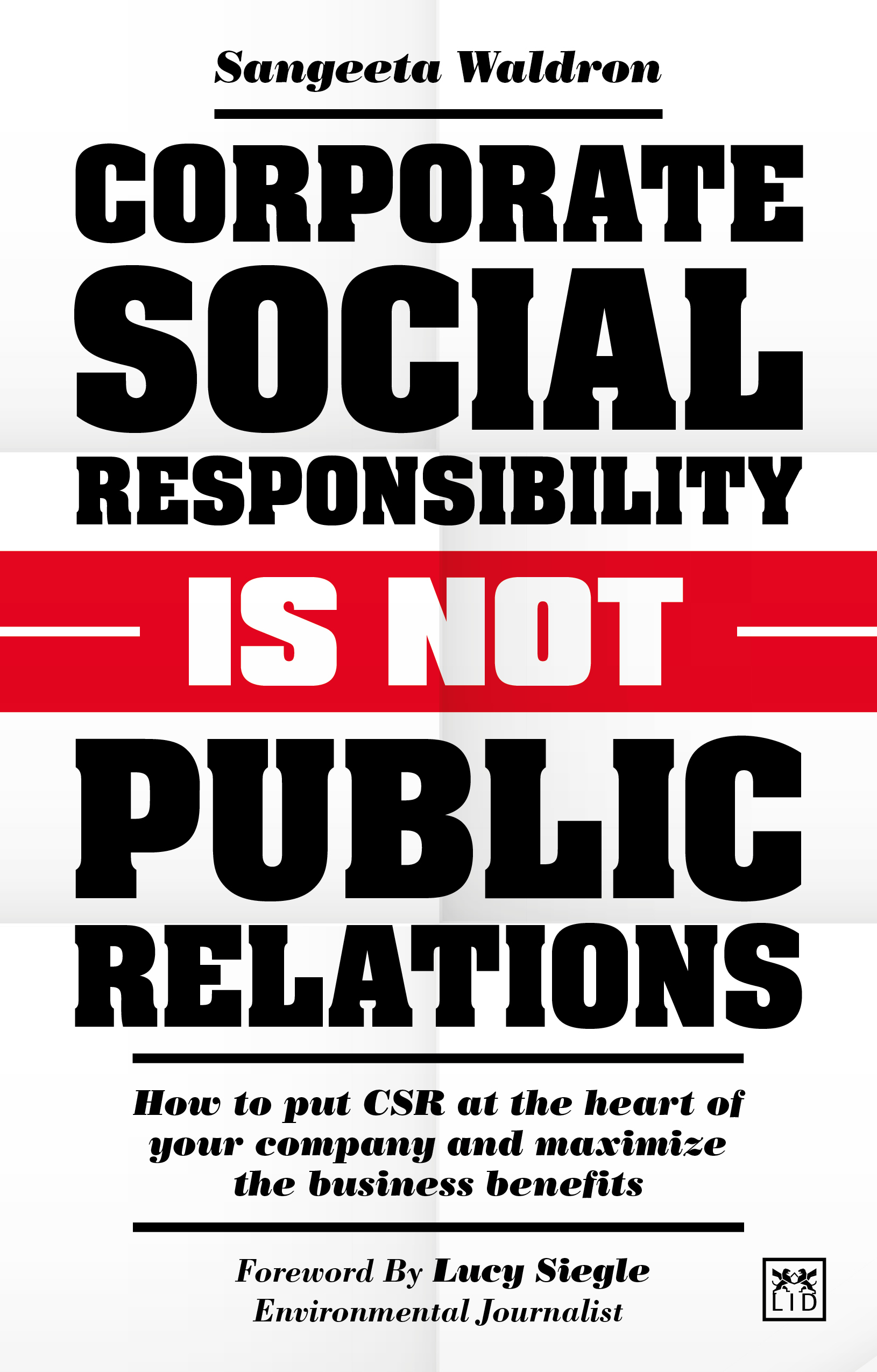I’m a huge enthusiast of CSR. Not the ‘doing some stuff to make you look good’ type, but the real deep-rooted stuff that benefits your organisation whilst also doing good in the world. Sadly, CSR never seems to have lived up to expectations, but let’s see what this book has to offer.
Here’s some of my key takeaways from each chapter:
1 – What is CSR and why is it important?
If you want to build CSR into your business strategy, you need to (1) build your strategy around your company’s core competencies (connect to what you already do), (2) develop CSR initiatives that align with your workforce (engage your employees), (3) Get buy in from all (so that initiatives are meaningful), (4) Recognise issues that matter to your customers, (5) Measure the ROI of your CSR efforts (6) strong, sustainable partnerships (7) Find new drivers of innovation (as CSR can be a driver of innovation). Right from the start, this is a really helpful framework to identify and focus potential CSR initiatives.
2 – What customers, employees, and stakeholders expect
Greenwashing and token CSR initiatives aren’t enough. In addition to focusing on customers, there are increasing expectations from the workforce and there are lots of way in which CSR helps Employee Relations (e.g. attracts talent, retains talent, encourages engagement and creativity).
3 – India
India was the first country in the world to make CSR mandatory through a change to its Companies Act, and there’s an interesting section on social entrepreneurship in India.
4 – The relationships between CSR & PR
This is a really strong chapter and provides some great background about how to ‘do’ PR, and then sets this in the context of CSR. My takeaways are (1) this needs thinking through (2) tell people what you’re doing (3) be authentic.
5 – #PRFail – When CSR goes wrong
I was glad to see this chapter providing balance, and warning against cynically trying to hide controversies or engage in ‘greenwashing’.
6 – When CSR wins
CSR can be a huge positive and Covid certainly hasn’t diminished that.
7 – CSR and the next generation
This is a really interesting chapter where the author is bold enough to make predictions about the future. With thoughts about future trends in Diversity and Inclusiveness, Gen Z, increased employee activism, AI, kindness (and other topics) it is clear that CSR is going to become increasingly important.
I’d like to see a bit more about making sure that your initiatives really help people; it doesn’t matter how well-meaning your interventions are, some of them could inadvertently make things worse if you don’t know what you’re doing. The easiest solution to this – in my opinion – is to make sure you partner with a charity who really knows what they are doing. (If you want to check that they really know what they’re doing, just quiz them about their ‘theory of change’ which should ‘join the dots’ and show how their activities and interventions result in the outcomes they claim).
If you’re already experienced in CSR, this isn’t a textbook and probably isn’t the book for you. However if you’re one of the many people who wants to do more and isn’t quite sure how to proceed, then this book has lots to offer. The book is interspersed with interviews, and includes a broad range of perspectives. There is lots in this book to get you moving in the right direction.
Published by Lid Publishing
Ian Pettigrew, Kingfisher Coaching







